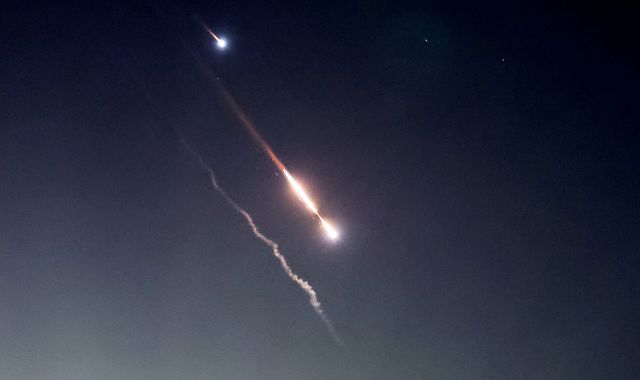
PARIS, April 15, 2024 (BSS/AFP) - Iran launched its first-ever direct assault on Israeli territory late Saturday in retaliation for a deadly strike by Israel on Tehran's consulate in Damascus on April 1.
Experts say Israel was able to neutralise most of the attacking missiles and drones -- but that Iran had deliberately sought to keep the intensity of the attack below a presumed threshold for inevitable Israeli retaliation.
- Calculated attack by Iran -
Iran's foreign minister said it had announced Saturday's retaliatory attack in advance, which it called "limited, minimal", and "aimed at punishing the Israeli regime".
Several experts said this shows Iran was seeking a show of strength with its attack, but without sparking an escalation.
Julien Barnes-Dacey, Middle East programme director at the European Council on Foreign Relations, said on X that Iran's "weak" drone showing was meant to signal that Tehran wanted to "avoid a wider war".
US political scientist Ian Bremmer called the situation "stressful", but he also suggested it was "best to breathe a bit".
- Who is involved? -
Israel won the full support of US President Joe Biden, who announced that American forces had contributed to the almost complete thwarting of the Iranian missile and drone attack.
Several countries intercepted projectiles flying over their bases or territories in the Middle East during the attack.
They include Britain, which has a major military base in Cyprus; Jordan, where flying objects penetrated into the airspace; and France, which mobilised its air defences around its regional army bases.
Iran's regional allies -- Hezbollah in Lebanon and Huthi rebels in Yemen -- fired shells and dispatched drones in Israel's direction during the Iranian attack.
However, Israel's apparent refusal to listen to advice from its allies was leading to a "humiliation" of its powerful friend, the United States, said Bertrand Badie, an expert on international relations.
"Israeli leaders take their own decisions and are indifferent to advice given," he told the France Info broadcaster.
- Strong defence systems -
The highly successful defence against the Iranian drones and missiles has given Israel confirmation that its air-defence systems are working.
"The interception rate was very, very high," international risk specialist Stephane Audrand told AFP.
However, should Israel detect signs of weakness on the Iranian side, it could be tempted to strike hard against its regional foe -- a move some Israeli politicians have been advocating, said Barnes-Dacey.